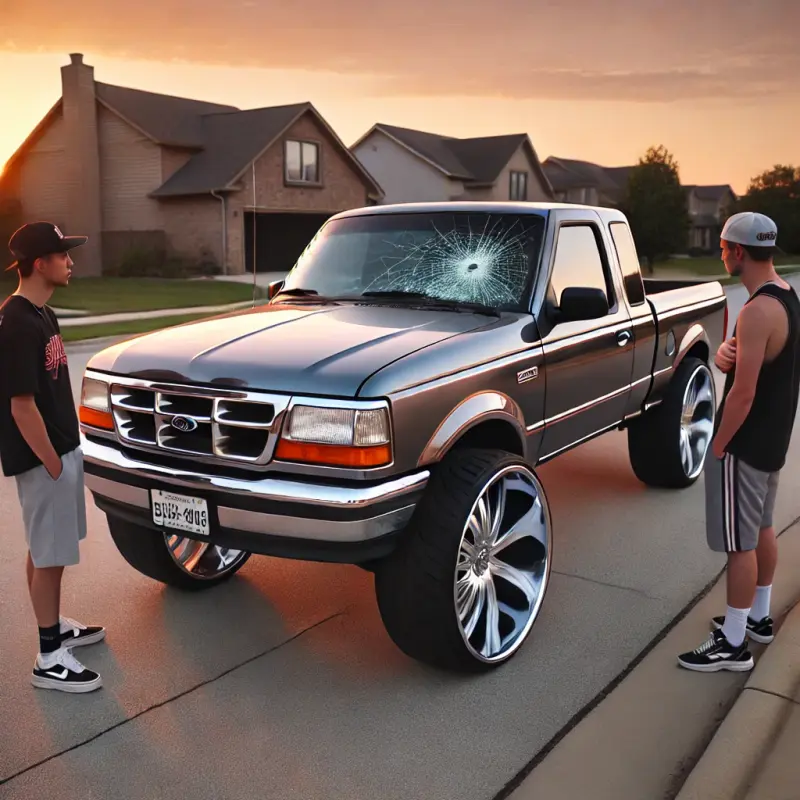Introduction
When it comes to driving, safety is paramount. One of the most crucial components of any vehicle is its windshield. Not only does it provide visibility, but it also plays a significant role in the structural integrity of your car. However, the legal requirements for windshields can vary significantly from state to state. This article will dive deep into “What Are the Legal Requirements for Windshields in Your State?” and explore various aspects such as regulations, auto glass replacement standards, and more.
What Are the Legal Requirements for Windshields in Your State?
The legal requirements for windshields are not a one-size-fits-all scenario. Each state has its own set of rules that governs what is acceptable when it comes to windshield installation, maintenance, and repair. Generally, states require that windshields must be installed correctly and must not have any obstructions that could impair a driver's view.
State Regulations on Windshield Transparency
Most states mandate a certain level of transparency for windshields. Typically, this means that the windshield should allow at least 70% of light to pass through. This requirement ensures that drivers have adequate visibility while driving during day and night.
Windshield Tinting Laws
Tinted windows are another area where laws differ widely. Some states are more lenient than others regarding how much tint you can apply to your windshield and other windows in your vehicle. It's crucial to check local laws because exceeding these limits can result in fines or even having to remove the tint.
Safety Standards Compliance
The Federal Motor Vehicle Safety Standards (FMVSS) outline specific safety criteria that all vehicles must meet in the U.S., including windshield specifications. Auto glass replacement shops must comply with these standards when installing new windshields to ensure safety and durability.

Understanding Auto Glass Replacement Standards
OEM vs Aftermarket Windshields
When replacing a windshield, you have options: Original Equipment Manufacturer (OEM) or aftermarket parts. OEM parts are made by the same manufacturer that produced your vehicle's original windshield, while aftermarket parts may vary in quality and fit.
Choosing Quality Over Cost
While it's tempting to go for cheaper options when considering auto glass replacement, remember: quality matters! A poorly fitted windshield can lead to leaks or even compromise structural integrity in case of an accident.
The Importance of Proper Installation
Improper installation can be just as dangerous as driving with a damaged windshield.
- Use Certified Technicians: Always opt for certified technicians who understand state-specific regulations. Adhere to Manufacturer Instructions: Every manufacturer has specific guidelines regarding how their products should be installed.
Insurance Considerations for Windshield Replacement
Does Insurance Cover Windshield Replacement?
Many insurance policies cover windshield replacements or repairs under comprehensive coverage plans. It’s worth checking your policy details or contacting your insurance provider for clarification.
Deductibles and Costs
Understand what your deductible is and how it affects your out-of-pocket costs when replacing your windshield. For some states where repairs are mandated by law if they don't impair visibility, you might even get away without having to pay anything!
Common Issues with Windshield Repairs
Windshield damage ranges from small chips to large cracks; understanding how each type affects legality is crucial.
Types of Damage That Require Immediate Attention
- Chips larger than a quarter Cracks longer than six inches Any damage directly within the driver's line of sight
Ignoring these issues can lead not only to legal repercussions but also unsafe driving conditions!
Regional Variations: What You Need to Know
Different regions have distinct climate conditions affecting windshields differently:
Northern States vs Southern States
- Northern states often require more stringent regulations due to harsh winters. Southern states may focus on UV protection standards because of high sun exposure.
Understanding these regional differences helps ensure compliance with local laws while keeping you safe Lenior Auto Glass on the road.
What Happens When You Get Pulled Over?
If you're stopped by law enforcement due to issues relating to your windshield:
Remain calm. Provide all necessary documentation. Be ready for potential citations if you're found violating local laws regarding windshields.Knowing what could happen helps ease anxiety when facing such situations!
Top FAQs About Windshield Legalities
Are there specific tint percentages allowed?- Yes! Most states allow 70% VLT (Visible Light Transmission) but always confirm local laws.
- It depends on severity! Minor cracks might be okay but larger ones usually aren't permissible.
- Check online reviews or consult your insurance provider for recommendations.
- In most cases, yes! Driving without one violates safety regulations in nearly every state.
- Many policies do cover them; check with your provider!
- Immediately contact the installation company for resolution—leaks could compromise safety!
Conclusion
Navigating through “What Are the Legal Requirements for Windshields in Your State?” doesn’t have to feel overwhelming! By understanding local laws regarding transparency, tinting, installation standards, and auto glass replacement options, you’re already ahead of the game! Remember always to prioritize safety—not just compliance—in all aspects related to your vehicle's windscreen! So next time you consider replacing or repairing your windshield, make informed decisions based on legal requirements tailored specifically for where you live!
Feel free to reach out if you have further questions or need assistance regarding any aspect discussed here! Safe driving everyone!